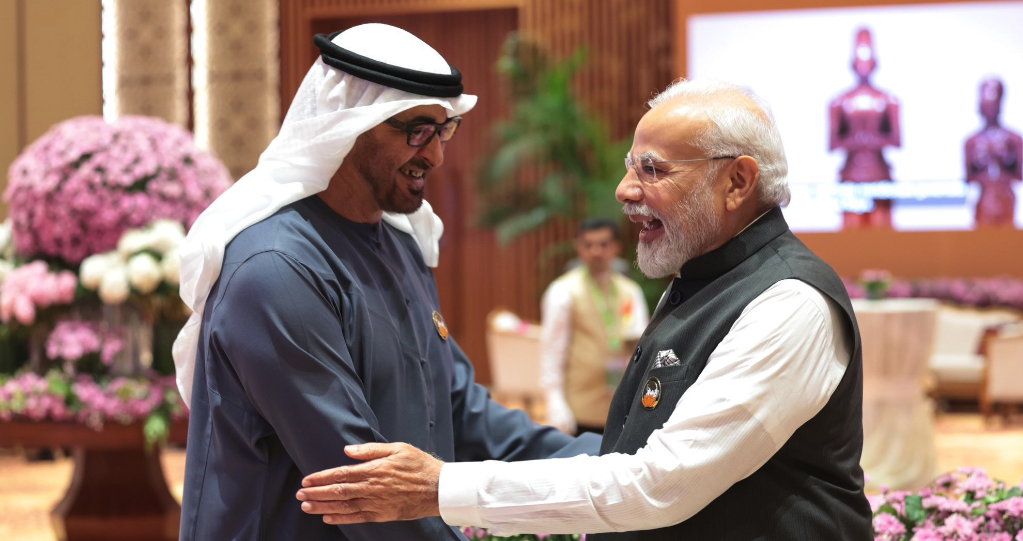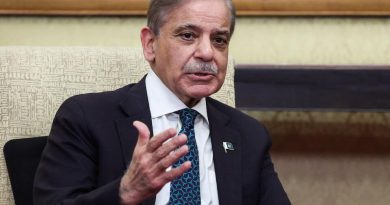India Makes History by Inviting Most Middle Eastern Countries to G20 Summit
India’s engagement with Middle Eastern Muslim countries has been effective in avoiding antagonism.
As world leaders gathered in New Delhi for the G20 summit, India made a significant mark in the history of the forum by inviting the largest number of Middle Eastern countries ever to participate as guests. While Saudi Arabia and Turkey are already members of the Group of 20 largest economies, it was only in 2008, when the annual leaders’ summit was initiated, that non-member Middle Eastern countries were included.
During their presidency or as host nations, G20 members have the authority to invite non-member countries to attend various meetings, including ministerial, sherpa, working group sessions, and the leaders’ summit. These invitations serve to enhance the legitimacy of the G20 and promote global outreach, with different non-member countries invited each year.
Under India’s presidency, non-member Arab countries have enjoyed unprecedented representation, participating in ministerial, sherpa, and working group meetings throughout the year. They were also present at the leaders’ summit held on Saturday and Sunday.
India extended invitations to nine non-member countries, including Egypt, Oman, and the UAE. Dr. Hasan T. Alhasan, a research fellow for Middle East policy at the International Institute for Strategic Studies, explained that the UAE, Oman, and Egypt are India’s closest economic and defense partners in the Middle East, making their invitations unsurprising. This move allows India to showcase its global influence to its Middle Eastern partners and highlight the breadth of its partnerships to other G20 member states.
India has established strong ties with the Middle East, particularly with Saudi Arabia. However, by engaging its three other major Middle Eastern partners, India demonstrates the importance it places on these relationships, not just in terms of foreign policy but also in economic and defense cooperation. Prime Minister Narendra Modi’s administration has prioritized relations with Gulf Cooperation Council (GCC) countries over the past nine years, emphasizing security, defense cooperation, and energy security.
India is the third-largest oil market for the GCC, sourcing about one-third of its oil from the bloc’s six states. Additionally, half of India’s liquefied natural gas comes from Qatar, the UAE, and Oman. Given India’s projected significant share of global oil demand growth by 2045, GCC oil exporters are keen on securing a long-term share of the Indian oil market. At the same time, India seeks to strengthen political relations with GCC oil and gas exporters to ensure a stable supply of energy and mitigate geopolitical shocks.
The Middle East holds vital interests for India, as evidenced by the significant number of Indian nationals living and working in Gulf countries. Approximately 9 million Indians currently reside in Saudi Arabia, the UAE, Kuwait, Qatar, Oman, and Bahrain. This Indian workforce, along with energy cooperation, forms a crucial pillar of India’s collaboration with Arab states. There is potential for further cooperation in areas such as food security and attracting investment from Gulf countries to India.
India’s engagement with Middle Eastern Muslim countries has been effective in avoiding antagonism. For instance, India refrained from participating in the 2003 American attack on Iraq to maintain favorable relations with Arab states. Furthermore, India’s increased Middle Eastern engagements through the G20 present an opportunity to strengthen ties vis-a-vis its regional rival, China. As tensions between Delhi and Beijing escalate, India aims to solidify its partnerships in the Middle East, focusing on geoeconomics, regional connections, economic collaboration, and military cooperation, particularly with traditional US partners in the region.
India’s emphasis on enhancing Middle Eastern-Indo relations aligns with the region’s pursuit of new projects, economic opportunities, technologies, and political alliances worldwide. As India uses the momentum of the G20 to build its geopolitical framework, it seeks to position itself competitively against China and establish itself as a key player in the Middle East.



